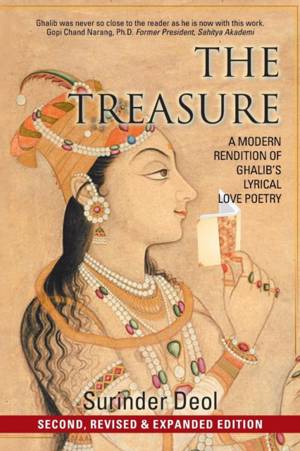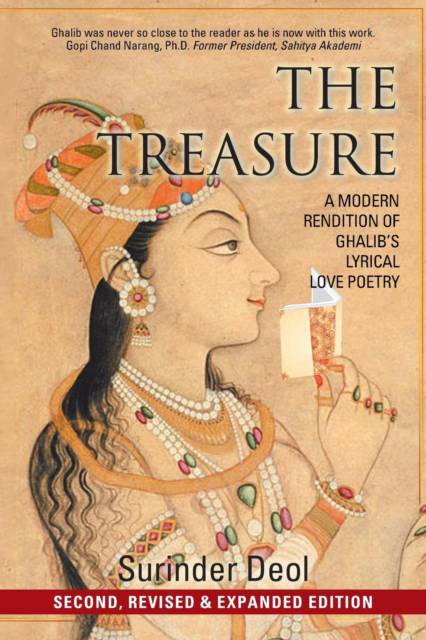
Bedankt voor het vertrouwen het afgelopen jaar! Om jou te bedanken bieden we GRATIS verzending (in België) aan op alles gedurende de hele maand januari.
- Afhalen na 1 uur in een winkel met voorraad
- In januari gratis thuislevering in België
- Ruim aanbod met 7 miljoen producten
Bedankt voor het vertrouwen het afgelopen jaar! Om jou te bedanken bieden we GRATIS verzending (in België) aan op alles gedurende de hele maand januari.
- Afhalen na 1 uur in een winkel met voorraad
- In januari gratis thuislevering in België
- Ruim aanbod met 7 miljoen producten
Zoeken
€ 23,95
+ 47 punten
Omschrijving
Mirza Ghalib, Indias most loved poet, lived at a time of great political and cultural transformation when the established order, the mighty Mughal Empire, was falling apart around midnineteenth century and the new regime spearheaded by the East India Company was not yet fully in place. There are multiple lenses that can be used to look at Ghalibs work. At the surface, he is a romantic poet par excellence. But if we dig deeper, Ghalib is much more than a romantic poet. He expressed ideas that came from conflicting philosophical traditions, namely the concept of shunyata (nonexistence) that is a core belief in Buddhist philosophy and the concept of Maya that is at the center of Vedantic philosophy. This book contains lyrical free verse English translation of 235 ghazals contained in Ghalibs Urdu Divan, popularly known as Divan-e Ghalib. One reason that makes the second revised and expanded edition of the book unique and extremely valuable is the addition of original Urdu text in an easy-to-read Romanized format. According to distinguished literary critic and leading Ghalib scholar Professor Gopi Chand Narang, Ghalib was never so close to the reader as he is now with this work. Surinder has succeeded in his creative transformation of Mirzas ghazals into poetic English where others have failed.
Specificaties
Betrokkenen
- Auteur(s):
- Uitgeverij:
Inhoud
- Aantal bladzijden:
- 466
- Taal:
- Engels
Eigenschappen
- Productcode (EAN):
- 9781543703566
- Verschijningsdatum:
- 25/08/2018
- Uitvoering:
- Paperback
- Formaat:
- Trade paperback (VS)
- Afmetingen:
- 152 mm x 229 mm
- Gewicht:
- 675 g

Alleen bij Standaard Boekhandel
+ 47 punten op je klantenkaart van Standaard Boekhandel
Beoordelingen
We publiceren alleen reviews die voldoen aan de voorwaarden voor reviews. Bekijk onze voorwaarden voor reviews.









